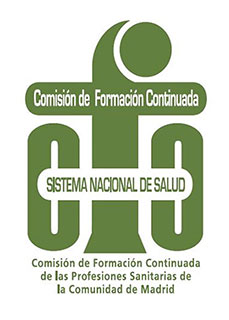Refresher Course on Pediatrics for Primary Care and Emergency Physicians

What you should know about Pediatrics in Primary and Emergency Care
Practicing medicine, in this case of Pediatrics, in the field of Primary and Emergency Care, requires continuous training and education on the part of the professional in order to provide the best care efficiently and based on scientific evidence.
Currently, we all know of the important healthcare pressure in the emergency and primary care services due to the growing demand of families to consult and resolve diseases of various kinds almost immediately.
Pediatric teams made up of pediatricians, whose scarcity at the national level, especially in the area of primary care, is worrying and well known, has been a current problem for years that requires evaluation by institutions and political entities for the welfare of children and adolescents and their families.
Curriculum
Pediatrics for Primary Care and Emergency Physicians
- 1. Pediatric Assessment Triangle.
- 2. Update in Pediatric Emergencies.
- 3. Clinical cases that cannot be missed.
- 4. Practical Dermatology. Teleconsultation on the rise.
- 5. Fundamental treatments in Pediatrics.
- 6. Nutrition and Physical Activity. Healthy lifestyle.
- 7. Empowering in Self-care of Health.
- 8. What NOT to do.
- 9. Useful digital tools.
- 10. Resolution of clinical case.
- 11. EVALUATION TEST.
Professors
 Lucia Linares Silveria
Professor
Lucia Linares Silveria
Professor
More Academic Info
Aimed at:
Competences
At the end of the course the student will have acquired the knowledge and skills to:
- 1. Get along with confidence and with clear ideas in pediatric patient care.
- 2. Confront with greater certainty the most frequent and relevant situations of Pediatrics in the clinical practice of the primary and emergency care consultation.
- 3. Be able to make an optimal screening of the seriously ill pediatric patient or that requires priority attention.
- 4. Stay up-to-date on the most used treatments in various pediatric pathologies.
- 5. Identify possible errors in pediatric care and make an adequate diagnostic and therapeutic approach.
Objectives
- Provide knowledge of practical application with scientific evidence.
- Have up-to-date training.
- Cover the most common areas of Pediatrics in emergency and primary care.
Methodology
- The course is taught online through the virtual classroom of Nebrija Global Campus. The lectures scheduled in a calendar previously communicated to the students are broadcast live with the professor's initial teaching presentation and later an interaction with the students to answer questions and pose clinical cases.
- Opening of a debate in a forum with a current topic sent to the Classroom to debate throughout the duration of the course.
- Live virtual classroom sessions with slides.
- Teaching material and bibliography provided by teachers.
- Exercises for students with follow-up. Solving of a clinical case.
- Personalized tutoring sessions.
- The evaluation includes the student following the teaching content. The student will have to take a multiple-choice exam (50 questions, 5 possibilities with only one valid answer), and will need 60% of correct answers to obtain the certificate of achievement to guarantee the assimilation of concepts and the fulfillment of the objectives. Post-training assessment survey on satisfaction of expectations.


